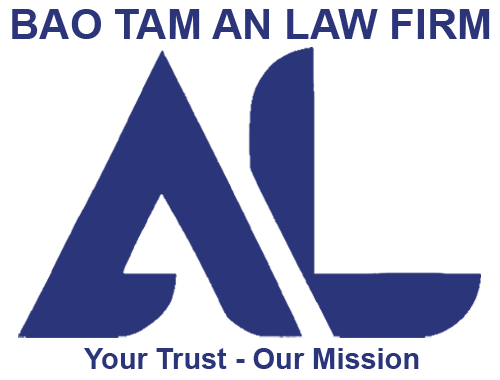Starting a Business: Legal Steps and Pitfalls
15:37
Starting a Business: Legal Steps and Pitfalls in Vietnam
Vietnam is becoming an increasingly attractive hub for entrepreneurs and investors looking to start a business in Southeast Asia. With its robust economic growth, young population, and expanding middle class, the opportunities are plentiful. However, starting a business in Vietnam requires navigating a complex legal landscape that presents various challenges and potential pitfalls. Understanding the necessary legal steps and being aware of common mistakes can significantly enhance the chances of success. This article provides a comprehensive guide to the legal steps involved in starting a business in Vietnam, as well as potential pitfalls to avoid.
Key Legal Steps in Starting a Business in Vietnam
1. Define Your Business Structure
The first step in starting a business is selecting an appropriate business structure. Common forms of business entities in Vietnam include:
- Limited Liability Company (LLC): An LLC limits the liability of its owners to the capital contributed, providing protection for personal assets. It can have from one to fifty members.
- Joint-Stock Company (JSC): A JSC can issue shares to the public and has a minimum of three shareholders. This structure provides flexibility for raising capital.
- Partnership: A partnership involves two or more individuals or entities collaborating to conduct business, where partners typically share profits and liabilities.
- Branch Office: Foreign companies may choose to establish a branch office in Vietnam to conduct business activities without forming a separate legal entity.
Each structure has its own pros and cons relating to liability, taxation, and management, so it is essential to select one that aligns with your business goals.
2. Register Your Business
After determining the business structure, the next step is to register your company:
- Business Registration: Foreign investors must submit an application to the Ministry of Planning and Investment (MPI) or the local Department of Planning and Investment (DPI). This includes the business registration certificate (ERC) and the investment registration certificate (IRC) if applicable.
- Documentation: Required documentation typically includes:
- A completed application form
- A feasibility study (for foreign investments)
- Proof of capital contribution
- Company charter or bylaws
This registration process generally takes about 7-15 working days, depending on the complexity of the application and the resources of the local authorities.
3. Obtain Necessary Licenses and Permits
Depending on your business type and industry, you may need specific licenses and permits to operate legally, including:
- Operational License: Certain sectors, such as healthcare, education, and food services, require operational licenses. Make sure to understand sector-specific regulations applicable to your business.
- Construction Permits: If your business involves building or renovation, obtain appropriate construction permits from local authorities.
- Environmental Permits: For businesses with potential environmental impacts, securing environmental impact assessments and compliance permits is essential to meet regulatory requirements.
4. Open a Bank Account
After successfully registering the business, you must open a bank account for your company in Vietnam. This account will facilitate transactions and is necessary for capital contributions. Choose a bank that offers services tailored to businesses, including multi-currency accounts and corporate banking services.

5. Implement Accounting and Tax Practices
Proper accounting and adherence to tax obligations are crucial for compliance:
- Tax Registration: Obtain a Tax Identification Number (TIN) from the General Department of Taxation. Ensure you register for corporate income tax, value-added tax (VAT), and any applicable local taxes.
- Accounting Standards: Familiarize yourself with Vietnamese accounting standards and maintain proper financial records to fulfill reporting obligations.
6. Labor Law Compliance
If you plan to hire employees, ensure compliance with Vietnam’s labor laws:
- Employment Contracts: Draft written employment contracts for all employees, in accordance with the Labor Code. Contracts should specify job roles, compensation, benefits, and termination conditions.
- Socioeconomic Benefits: Register employees for social insurance and ensure compliance with labor law regulations regarding wages, working hours, and workplace rights.
7. Protect Intellectual Property
Intellectual property (IP) protection cannot be overlooked, especially in a competitive marketplace:
- Registering Trademarks and Patents: File applications for trademarks, patents, and copyrights with the National Office of Intellectual Property (NOIP) to secure legal rights and prevent unauthorized use.
- IP Audits: Conduct regular IP audits to assess and ensure robust protection of your IP assets.
Common Pitfalls to Avoid
While starting a business in Vietnam presents great opportunities, several common pitfalls can hinder success:
1. Inadequate Market Research
Failing to conduct thorough market research can lead to poor business decisions. Understanding market trends, competitors, and customer preferences is crucial for tailoring your offerings.
2. Ignoring Legal Requirements
Many startups overlook the importance of adhering to legal requirements, leading to fines, penalties, or even shutdowns. Make compliance a priority from the outset to avoid complications down the road.
3. Poor Contract Drafting
Contracts are the foundation of business relationships. Poorly drafted agreements may lead to disputes, confusion, or unfavorable terms. Always engage legal counsel to ensure contracts are comprehensive and enforceable.
4. Underestimating Costs and Time
Starting a business involves numerous fees and potential delays in obtaining licenses and permits. Budget accordingly and build timelines that account for potential regulatory obstacles.

5. Lack of Professional Guidance
Attempting to navigate the complexities of business registration, compliance, and legal requirements without professional assistance can be risky. Engaging business lawyers and consultants can provide you with the expertise needed to make informed decisions.
6. Overlooking Local Expertise
Local partners, consultants, and legal advisors can offer invaluable insights into business practices, regulations, and cultural nuances, facilitating smoother operations.
Engaging With Legal Counsel
Hiring a business lawyer or legal consultant can provide significant advantages for startups in Vietnam:
- Expert Guidance: Lawyers specializing in business law can help navigate the intricacies of local regulations, offering insights into legal requirements and compliance.
- Contract Drafting: Legal professionals can assist with drafting contracts and agreements that protect your interests and ensure compliance with Vietnamese law.
- Risk Mitigation: Attorneys help identify potential legal risks and develop strategies to mitigate those risks proactively.
- Representation in Disputes: Should disputes arise during the operation of the business, legal representation can be crucial for protecting your interests during negotiations, litigation, or arbitration.

Conclusion
Starting a business in Vietnam presents a wealth of opportunities, but it also requires careful navigation of the legal landscape encompassing regulations, compliance, and contractual obligations. By following a comprehensive legal checklist that considers essential requirements such as registration, permits, employment laws, and intellectual property protection, entrepreneurs can establish a solid foundation for their enterprises. Avoiding common pitfalls and engaging qualified legal experts will further enhance the likelihood of success, enabling businesses to thrive in Vietnam’s dynamic market. With thorough preparation and strategic planning, starting a business in Vietnam can be a rewarding venture that paves the way for both local and international growth.
